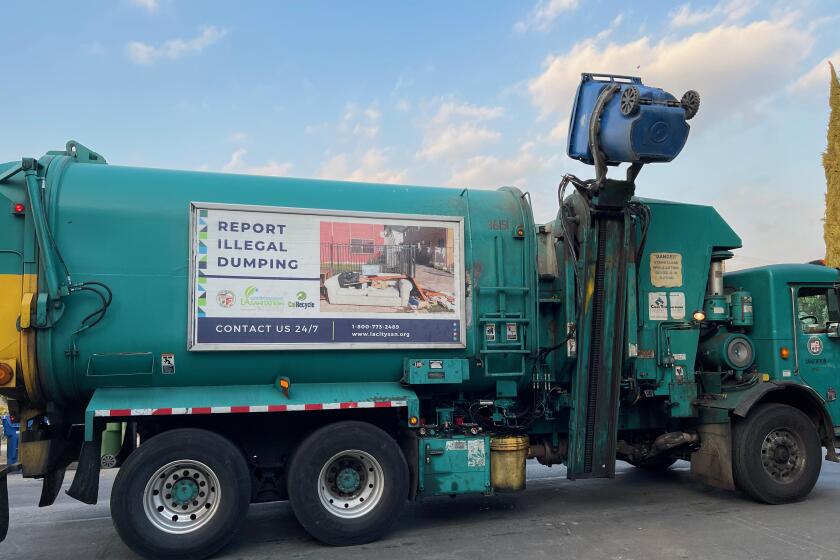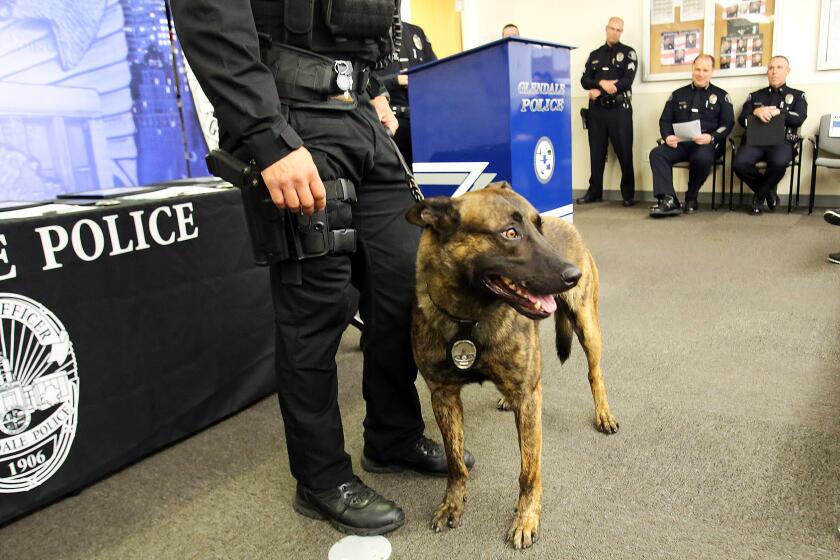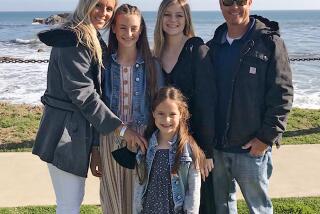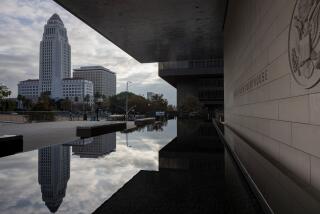Mother seeks answers after Los Angeles trash truck kills her son
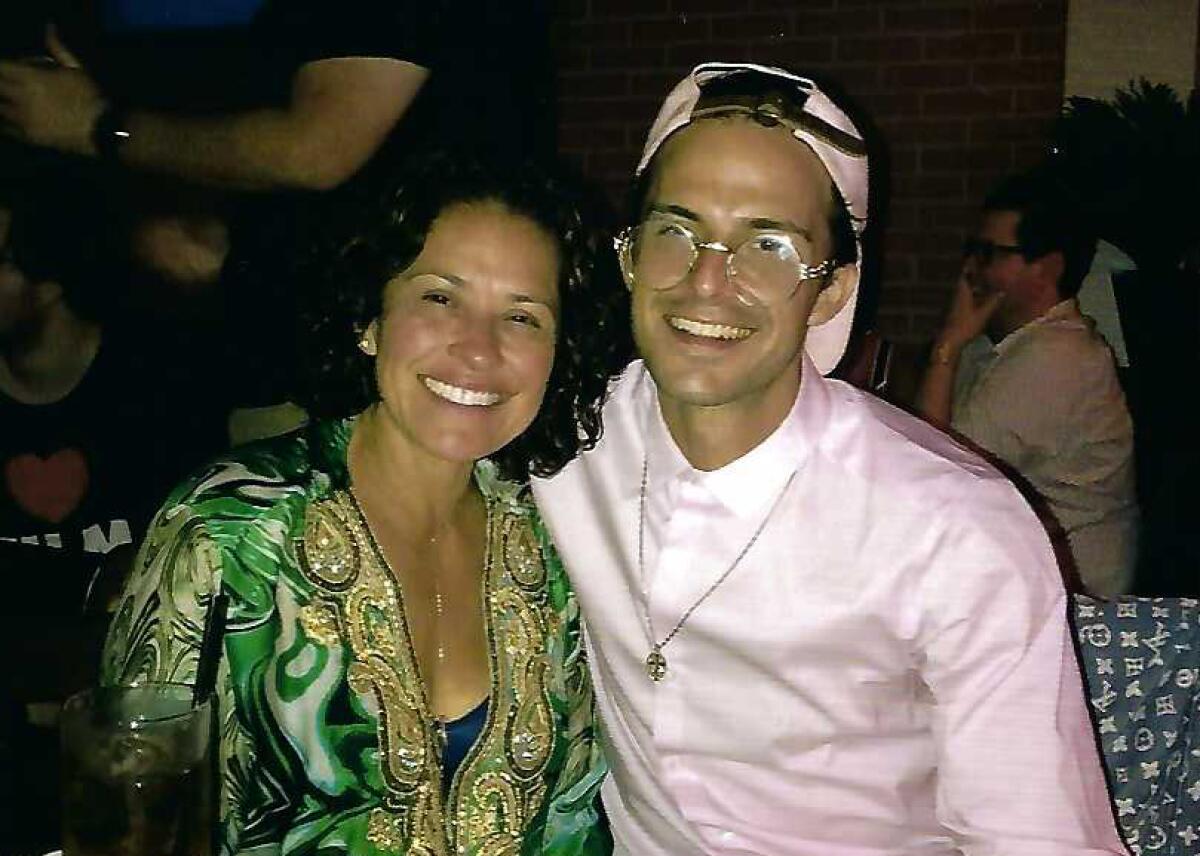
- Share via
The family of a 35-year-old man struck and killed by a Los Angeles Bureau of Sanitation vehicle last month plans to file a wrongful-death lawsuit against the city.
David Soto-Toral was struck by the trash collection vehicle around noon on Jan. 25 in an alley in Sherman Oaks.
His mother, Sara Toral, learned the news a day later from the coroner’s office. When she asked to see her son, she said, she was told he was “unrecognizable.”
“I just lost it,” Toral told The Times. “I don’t remember much about that day.”
Los Angeles police responded around 11:45 a.m. to a report of a pedestrian who had been hit by a vehicle in the 15000 block of Burbank Boulevard, a residential area near the Sepulveda Basin Recreation Area, Los Angeles Police Department officials said.
Soto-Toral was pronounced dead at the scene.
The driver was interviewed by detectives “and was not impaired in any way,” the LAPD said in a statement, adding that “there are no criminal charges anticipated.”
After her son’s death, Toral said an LAPD detective told her that the driver had said they had tried to maneuver around what appeared to be a pile of blankets. While doing so, she was told, the driver had caught her son at the corner of his head “and crushed his skull.”
The coroner’s office listed Soto-Toral’s cause of death as blunt head trauma.
“If you saw a bunch of blankets, in my mind I would think it would take me longer to maneuver around the blankets than to park and just check,” Toral said, as she started to cry. “I want the person who killed my son to be held accountable.”
Soto-Toral was the type of son who would buy her sour candy — her favorite — when he knew she was having a hard time, Toral said. In a Mother’s Day card he gave her last year, he wrote, “Thank you for always being there for me through the ups & downs. I’m so excited to know that from here on out you’ll be experiencing the best version of me. You’ll get to see & be proud of the man you always knew I could be.”
Toral described her son as passionate about skateboarding and fashion. As a skater, she said, he suffered broken bones and was prescribed opioid painkillers.
He became addicted, and when he couldn’t get any more pills, she said, he started using other drugs, including marijuana, heroin and fentanyl.
After Soto-Toral’s death, Mayor Karen Bass and Councilmember Nithya Raman suggested in written statements that the victim was homeless.
The death comes less than two months after a sanitation truck struck and killed a pedestrian in San Pedro.
Toral said she disagreed with that label.
“My son was not homeless,” she said. “He struggled with drugs.”
Her son had been living with his aunt in San Fernando until early January, Toral said. After he left, he stopped returning the family’s calls.
“David had this thing where if he started using drugs, he would stay away and then he’d come back,” Toral said.
Since his death, Toral has visited the alley often to leave flowers for her son. She and her daughter were there on Valentine’s Day, and she said she would return again on Sunday.
Toral plans to file a wrongful-death lawsuit against the city of Los Angeles and the driver of the sanitation truck.
“There’s no question that there’s a tremendous amount of love that was lost here,” said Robert Brennan, the Toral family’s attorney. “We just want to make sure that it’s understood that this was a human being with a life and a future.”
The Los Angeles Department of Public Works, which oversees the sanitation bureau, said it could not comment on potential or pending litigation.
Two California Democrats said their bill aims to “end a deeply racialized and harmful practice that has been a mainstay in America’s history of racial bias and violence against Black Americans and people of color.”
More to Read
Sign up for Essential California
The most important California stories and recommendations in your inbox every morning.
You may occasionally receive promotional content from the Los Angeles Times.

